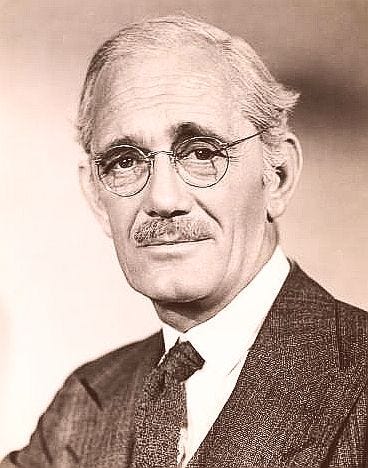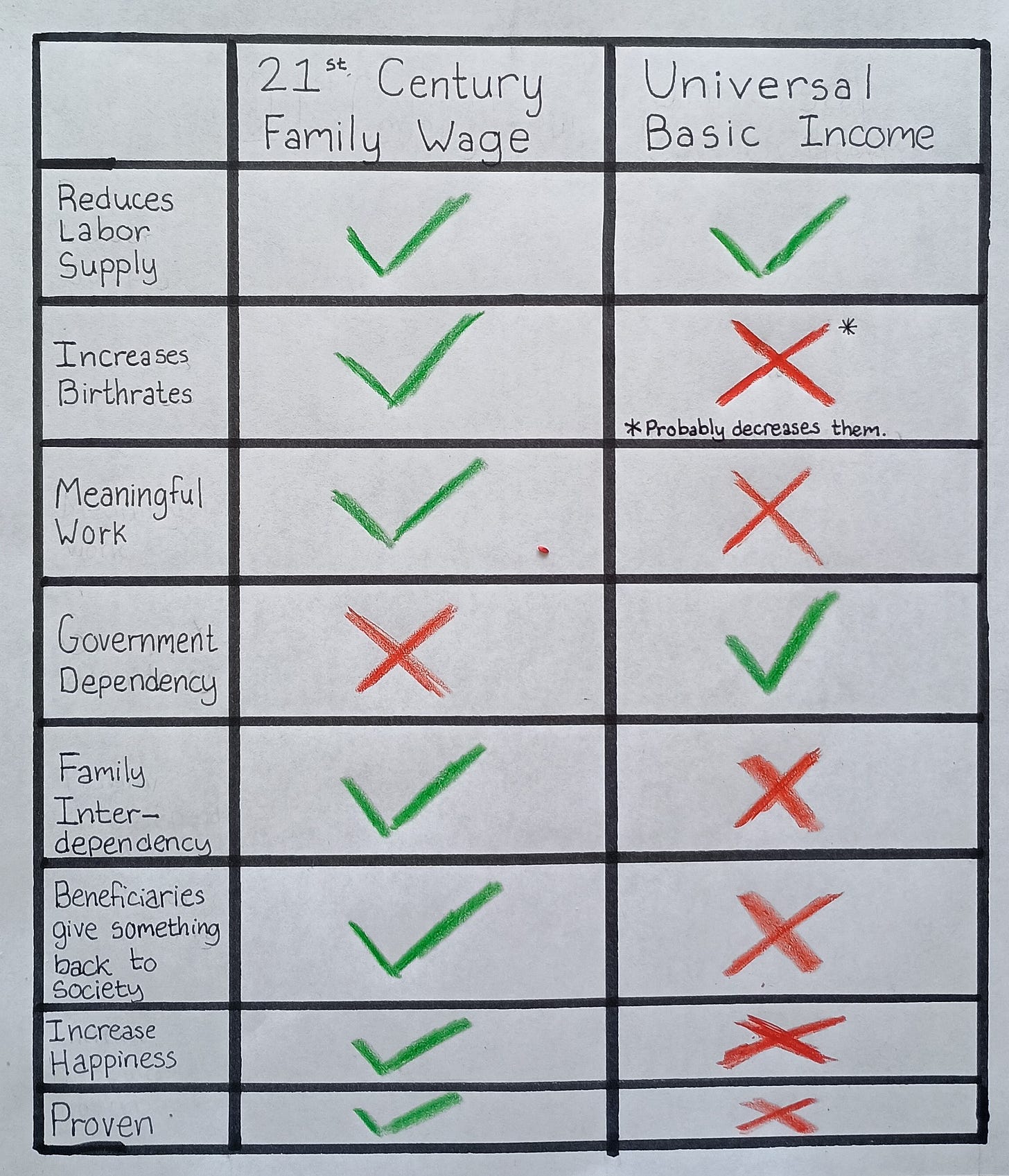You want to encourage family?
Such gall.
We should pay people to do
nothing at all.
We watched the only Hitchcock screwball comedy, Mr. and Mrs. Smith.
We do not highly recommend.
Anyhow, in one scene in this 1941 movie Carole Lombard has taken up work as a department store girl. Robert Montgomery gets her fired by telling her boss that she is married. The flinty boss harrumphs to Lombard that their policy is to not hire married women so as not to deplete the jobs available for married men who presumably have a family to support. The movie handles the scene as if this were a pretty standard policy, nothing at all out of the ordinary about it.
“Our employment practices are designed to support the existence of conventional families” is not something a corporation would say nowadays, or likely legally can, but it was the clear assumption of the film.
In midcentury America, there were a whole complex of practices meant to make it possible for a single earner to support a spouse and a family. The Family Wage system. To today’s eyes, it seems eerily different than anything we are used to. But it does have something in common with modern-day proposals like Universal Basic Income. It was designed to limit the number of workers in the formal economy.
Paraphrasing the gospels, can and should we want a system where the economy was meant for human life, not human life for the economy?
That is the subject of today’s transmission. Specifically, if automation and AI are reducing the number of workers needed, which is a better response: Universal Basic Income or the Family Wage?
The Original Family Wage System
In the mid-century verson of the family wage system, minimum wage was high enough to support at least a small household, basic goods especially housing in a safe neighborhood were plentiful in modest but cheap versions, and there were a number of practices in place to ensure that there were plenty of jobs for married men, at the time primarily by excluding most women from lifelong participation in the workforce There was the marriage bar mentioned above, and only a limited number of jobs that women could be hired for.
The key part of the system of interest to us was higher wages for single-income family providers.
This transmission is not intended as a historical education. If you want more specifics a number of Alan C. Carlson’s books could give you the inner workings. A modern Family Wage system would no doubt look different than the midcentury version. The point is that there was at one time in America and much of the rest of the Western world a system that was designed to raise wages by suppressing employment, and it largely succeeded.
Some people object to any consideration of midcentury practices on the grounds that the era was racist. It’s worth considering that in the midcentury era, 90% of black children were born in stable, married homes and many more black children were being born. Not all midcentury ideas need to be rejected out of hand.
Universal Basic Income
There will be fewer and fewer jobs that a robot cannot do better. I want to be clear: These are not things I wish will happen — these are things I think probably will happen
-Elon Musk


Many quite intelligent people believe that the growing sophistication of production has made raw labor increasingly meaningless. They think we have too many workers already, that the reality has been concealed by the inefficient proliferation of meaningless make-work email jobs, and that the problem is only going to get worse.
As a solution, they propose UBI—Universal Basic Income.
There are as many UBI proposals out there as there are college coffee shops. Just as with the 1950s Family Wage system, the point of this transmission is not to drill down into analyzing the specifics of any one of them.
In broad strokes, although the original UBI proposals from Milton Friedman were meant to replace welfare payments, modern UBI proposals are meant to tackle the problem of too few jobs. They have the government give every adult a modest living stipend.
Universal income will be necessary over time if AI takes over most human jobs. Also think there should be a universal basic income that doesn't change even if you get a job.
-Elon Musk
Andrew Yang ran for president on this platform.
The astounding thing is that there is another model for dealing with a surplus of labor and it is superior to Universal Basic Income in almost every way.
COMPARISON
Let’s compare two different models of dealing with the problem (assuming it is a problem) of a reduced need for labor. Let’s compare generic UBI and a generic modern Family Wage system.
UBI: the government sends a thousand bucks a month to every adult. The supply of labor is reduced, as desired. People who can’t find work can now scrape by with roommates. They have nothing to do. Anything they are given to do is make-work.
Family Wage: the government incentivizes employers to pay more for married workers with children who are the only full-time worker in their home. Around $2000 more a month if we wanted the costs to compare to the generic UBI. Given basic human dynamics this would often be the father but the system need not be formally and legally limited to fathers at all. The supply of labor is reduced, as people now have an incentive to focus more on running a household while their spouse works. But the spouse is not just “out of work.” They have meaningful work that needs doing and that they can do better than anyone else. Birth rates increase. People are happier
Choose.












The economy is for man and not man for the economy. I like that.
This is slightly out of the scope of your article but another big difference is the expected weekly hours. The mid century system suppressed hours, inventing the 40 hour work week. I just saw a note on here about the Bar association saying 2400 billable hours a year is not an unreasonable expectation. There is no family life on that schedule. That sort of expectation becoming widespread seems to be genociding several E. Asian nations.
Overtime was one of the legal mechanisms to enforce tge 40 hr week. Yet with one thing and another OT hours are almost always cheaper to an employer than regular hours.